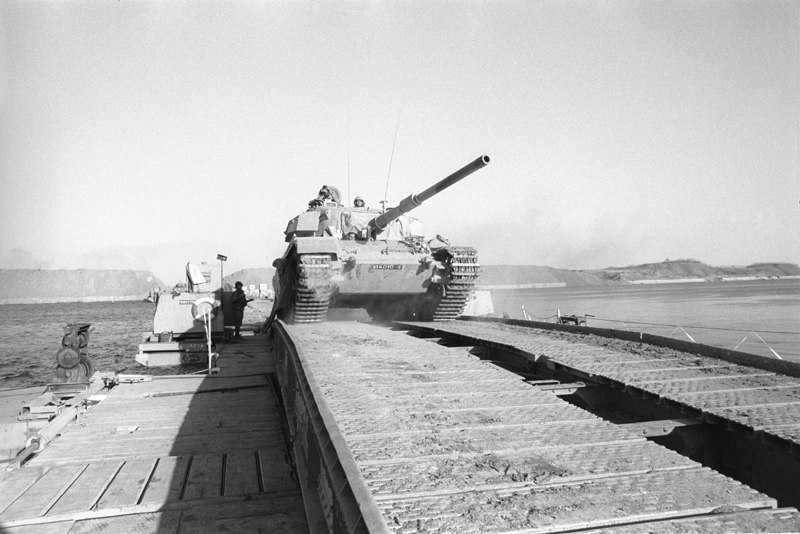by Uri Kaufman
Some years, like 1776 and 1939, need no introduction; their reputations travel before them. For Israelis, 1967 is enshrined in national memory as the year they triumphed over their enemies in six days. Its evil twin is 1973, the year it suffered a surprise attack on the Yom Kippur holiday.

The war began for Israel about as badly as any war could. Syrians in the north and Egyptians in the south came crashing forward through dust, smoke, and fire. The Israeli line crumbled and all of the IDF’s plans and assumptions with it. Hand-held missiles decimated Israeli tanks. Surface-to-air missiles knocked Israeli planes from the sky. Following a failed Israeli counter-attack, there were less than thirty tanks between the Egyptian Army and Tel Aviv. A badly shaken Moshe Dayan murmured that “The Third Temple”—the Jewish state itself, heir to the Second Temple destroyed in 70 A.D.—”is at risk.” Minister of Education Yigal Allon stated in an interview—an interview that was not declassified until over twenty-five years after his death—that Dayan, “seized on nuclear weapons as a weapon of salvation, out of despair.” Dayan’s proposal was taken seriously enough that a general burst into his superior’s office in tears and cried, “you have to save the country, those lunatics want to go nuclear!”
And yet, miraculously, the tide of war turned. First, in the southern Golan Heights where a lone tank lost in the night held off a Syrian division for eight crucial hours. Then, further north, in a battleground christened The Valley of Tears, where a handful of Israeli tanks ran out of ammunition, but held a ridge just long enough to beat back an enemy offensive.
In the south, the Israelis quickly concluded that they could not defeat the Egyptians unless they surrounded them by crossing the Suez Canal. The Israelis thus crossed the canal in a spectacular throw of the dice, sending more than two-thirds of their tanks driving through the Egyptian heartland. Israeli Defense Minister Moshe Dayan told Prime Minister Golda Meir that if the force was lost, the nation would find itself fighting on the outskirts of Tel Aviv. The effort succeeded, but only because Israeli general Ariel Sharon cleared the path to the canal by launching an unauthorized attack.
The story of the October War could only be told as a history. Written as fiction, the events would be too implausible for any novelist to contrive. And as it approaches its fiftieth anniversary it speaks to us still, not just as drama, but as the central event that shaped the modern Middle East. It was the October War that convinced Egypt to abandon the hope of driving Israel into the sea. It was the October War that moved non-state actors such as Hamas and Hezbollah to center stage, taking the place of Arab armies that would no longer confront Israel. And, it was the oil embargo during the war that empowered the Arab world and changed the course of international politics for a generation.
 A graduate of New York University School of Law, Uri Kaufman is an award-winning real estate developer, specializing in adaptively restoring historic buildings. He has worked on this book for over twenty years, visiting the battlefields, speaking to participants and reviewing literally thousands of pages of material. He lives with his family in Lawrence, New York.
A graduate of New York University School of Law, Uri Kaufman is an award-winning real estate developer, specializing in adaptively restoring historic buildings. He has worked on this book for over twenty years, visiting the battlefields, speaking to participants and reviewing literally thousands of pages of material. He lives with his family in Lawrence, New York.
